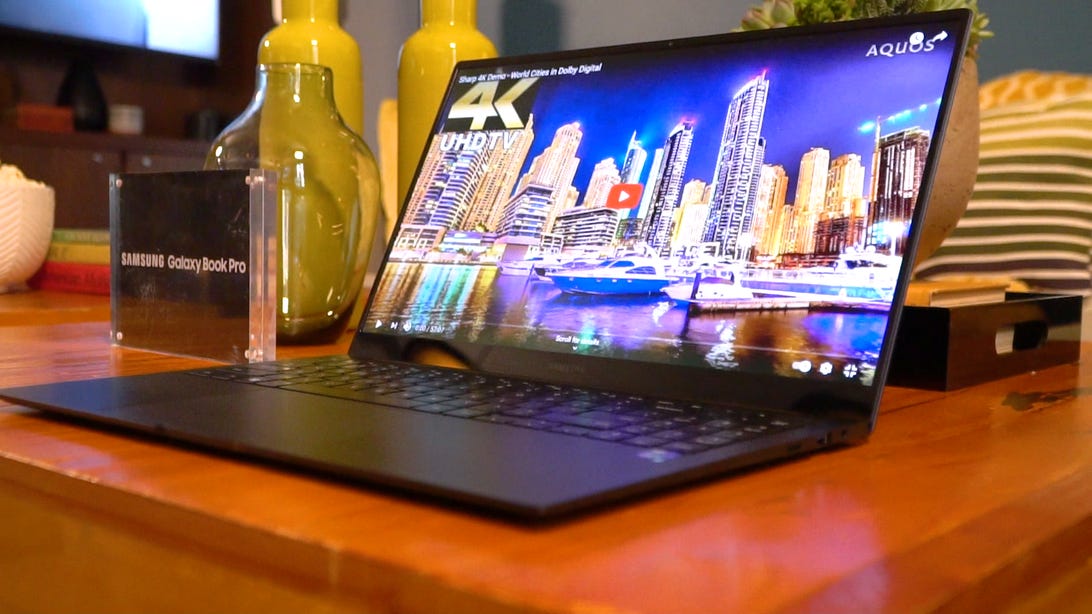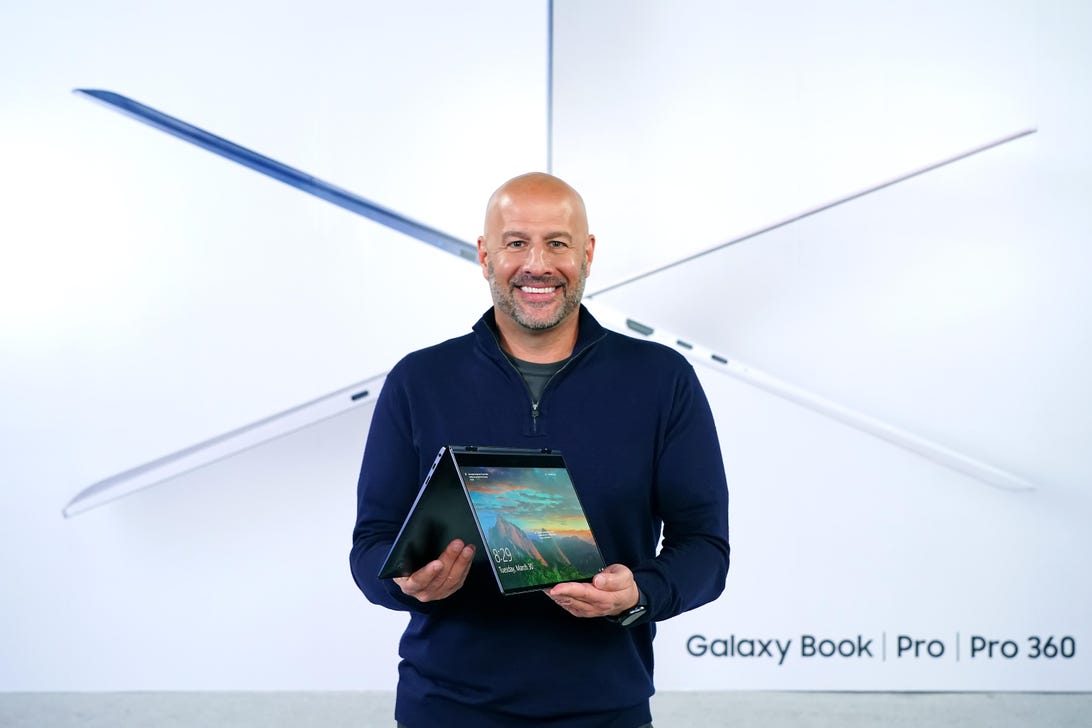
Samsung's Galaxy Book Pro was co-engineered with Intel to deliver a new, unified Galaxy experience.
The pandemic created a huge shift in how -- and where -- a lot of people work and learn. It also accelerated demand for new technology to get things done. The PC market boomed last year in response, with worldwide PC shipments totaling 91.6 million units in the fourth quarter of 2020 alone, according to research firm IDC.
"The PC is essential, whether that's people working from home or learning from home, it's how they communicate with their friends and family, how they collaborate," Gregory Bryant, EVP of the Client Computing Group at Intel, told CNET in a recent video chat. PCs aren't just personal computers now, but a key instrument for enabling people to achieve what matters most to them, what Bryant calls "purposeful computing."
"People have multiple roles during the day," Bryant says. "Sometimes during the day I'm a dad, sometimes during the day I'm a musician, I play the drums. Sometimes during the day, I'm a professional -- it's not a one-size-fits-all thing and during the day a person can play multiple roles, so how do we build purpose-built systems that are optimized for that experience?"
This question is at the heart of what was Intel's Project Athena program and has morphed into the chip-maker's Evo platform. An Evo-verified laptop must meet certain standards for performance, battery life, wireless and wired connections and responsiveness among other things. These standards were designed to meet key experience indicators or KEI that Intel developed after studying PC users and their needs to help them handle their multiple roles throughout the day.
Samsung starts a new Evo chapter

Gregory Bryant, EVP of the Client Computing Group at Intel, with the Galaxy Book Pro 360.
IntelWhen Intel started Project Athena, the target user was "the mobile go-getter," and each of the current 75 Evo-verified PCs is co-engineered with Intel to deliver a top mobile experience. However, two of the newest additions, Samsung's Galaxy Book Pro and Pro 360, are the first to push the spec further. The premium PCs are built to bring together the strengths of Intel's PC ecosystem and Samsung's mobile ecosystem to create centerpiece PCs for "mobile-first consumers."
Read more: Samsung Galaxy Book Pro, Pro 360 laptops promise the best Galaxy experience starting at $999
"These are consumers used to being always connected on their phone. And so they want to also be always connected on their PC, and they want all of their devices to sync and work seamlessly together," says Danielle Moten, senior product manager for Samsung. The idea is to have fluidity between devices so you can start something on your phone and continue it on a laptop.
Intel and Samsung spent the last couple of years working together to make this happen, along with help from Microsoft on the software side. For example, the laptops have a custom Bluetooth enablement that allows Galaxy Buds to instantly connect without the process of going into settings and selecting them. With your Galaxy phone, you can connect to the laptop and drag and drop files and content between the two near-instantly. You can also use a Galaxy Tab tablet as a second extended (or mirrored) display and use the laptops to control your SmartThings smart home devices as well as use it to locate your other Galaxy devices.
The end result is seemingly a unified experience with all the devices in Samsung's Galaxy ecosystem. This kind of deep integration between products is something that typically gets attributed to only one company: Apple.
Despite AMD nipping at Intel's heels with its latest mobile chips and Apple cutting ties with the company in favor of its own processors, Bryant is confident Intel still has the advantage.
"The strength of Intel and the client computing group is our ability to not just deliver the CPU, but a variety of the system components and then work with third parties to do the deep platform engineering with our customers. It's what we bring to the table and it's really differentiated us."
April 30, 2021 at 06:00PM
https://ift.tt/3aQ2zjB
Intel, Samsung and the move to purposeful computing - CNET
https://ift.tt/2O3clnm

/article-new/2021/06/iphone-13-duan-rui2.jpeg?lossy)
No comments:
Post a Comment